








Founded in 1982, The Drew Company has curated a diverse portfolio of visionary real estate projects and public-private partnerships. Senior Director and Development Manager, Austin Bell, outlines how the business continues to be able to build developments for the future on the existing foundations of the past
Writer: Lily Sawyer | Project Manager: Michael Sommerfield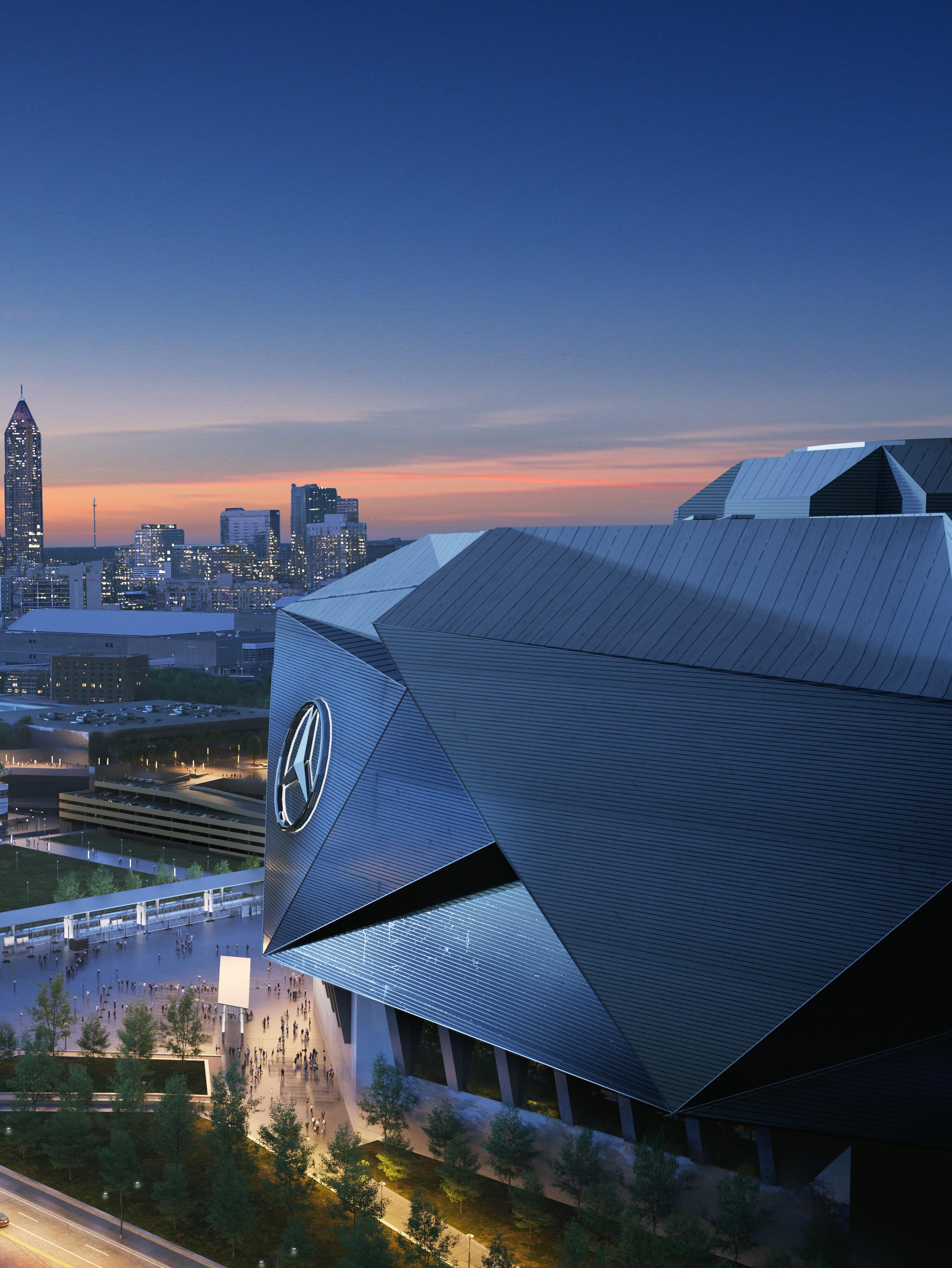
In the global construction industry, development is often circular and can vary by region, product, and economy.
As such, many municipalities across North America have witnessed a recent construction boom due to a profitable post-COVID-19 market, therefore providing opportunities for growth.
Nowhere is this truer than in Atlanta, Georgia, where an emerging multi-family housing market, accompanied by a strong hospitality sector, has bolstered the city’s expanding skyline.

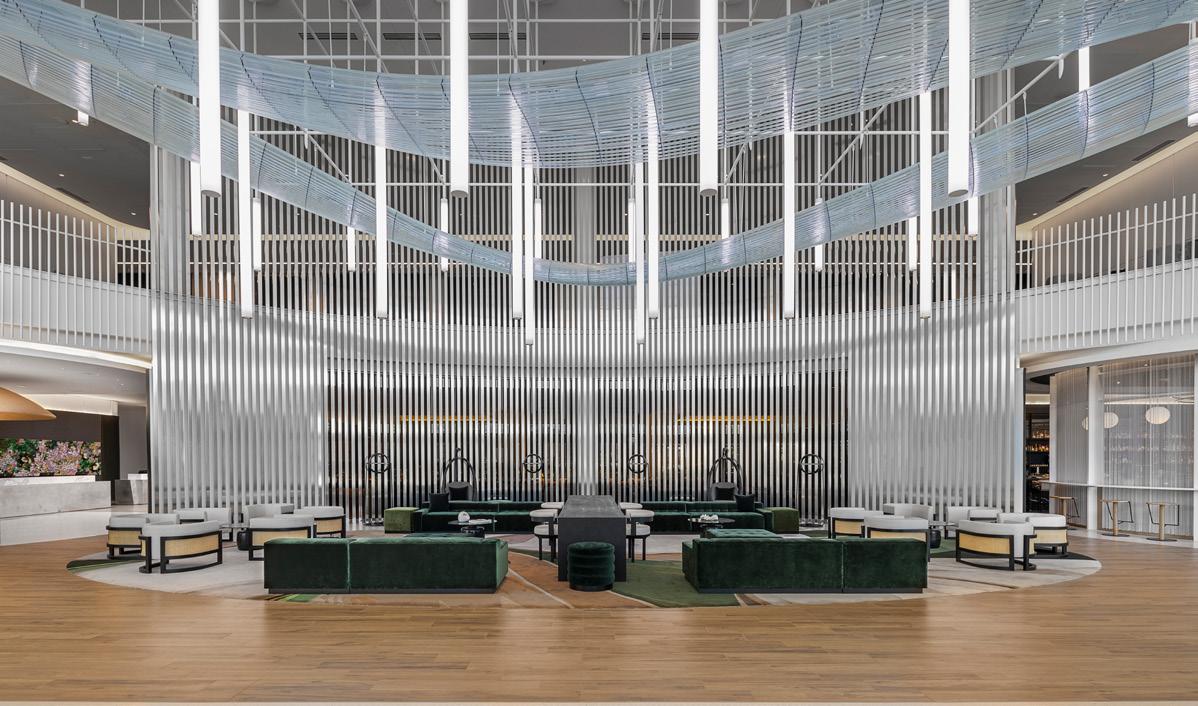
The Drew Company, an experienced property development and real estate management business specializing in hospitality, office, retail, and residential, is ideally placed to benefit from the industry’s recent growth.
“Working in this sector is both exciting and challenging. As a company, we work on larger, complex developments that can take several years to become a reality. It’s exciting to see a project that you spent years of your career on come to fruition,” opens Austin Bell, Senior Director and Development Manager at The Drew Company.
Headquartered in Boston, Massachusetts, and with offices in Atlanta and Washington, D.C., where the business manages the Ronald Reagan Building and International Trade Center, The Drew Company’s nationwide scope is extensive.
The organization offers ground-up developments that it owns and operates alongside third-party services.
“As an architect by profession,
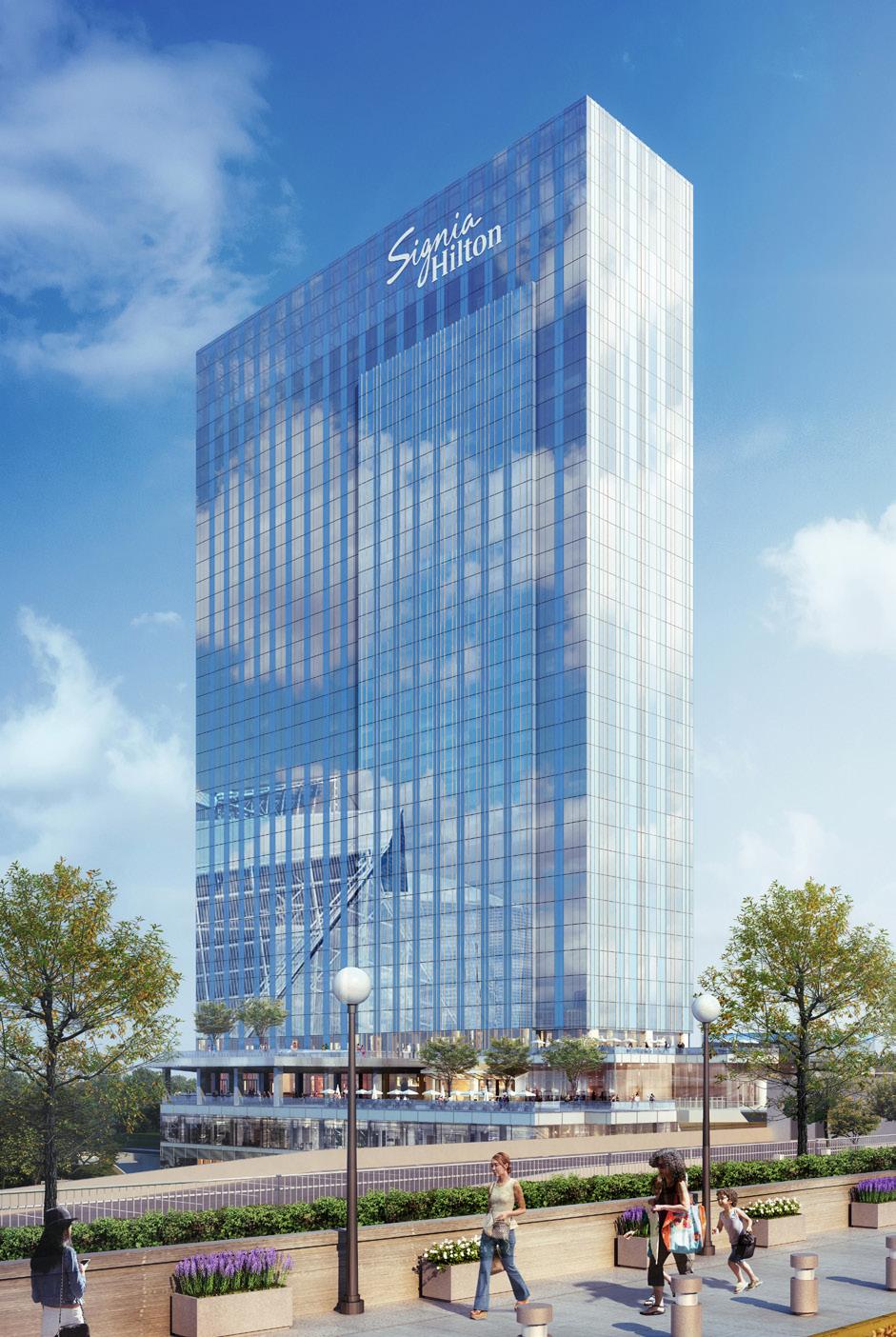
I spent 14 years working for architectural firms around Atlanta before stepping into the development world, where I have now been for over two decades. I’m grateful to have the opportunity to work on a wide array of developments,” Bell reflects.
As The Drew Company’s customer base includes both public and private clients, a collaborative approach allows it to take on deals
in which customers have little to no development experience.
“We pride ourselves on being able to articulate the complexity of development in a simple, understandable way and walk our clients through the process,” he enthuses.
As a property developer that strives to stand out, and as market interest rates continue to soften, The Drew


Company is optimistic for the future of the construction industry in Atlanta.
With a diverse group of talented professionals making up its staff base, and open dialogue in terms of professional respect and communication, The Drew Company emerges as a property developer with a difference in terms of its collective approach.
“I see myself as a coach. It’s my responsibility to understand what my players can do and where they need support. I think that’s what sets us apart – we are a team, and each of us has our own way of looking at things, which gives us a well-rounded, realistic perspective,” Bell imparts.
The Drew Company’s strong team consists of design, construction, and legal professionals, each with expert knowledge in their respective fields.
“The deals we work on are very complex. For example, the documents that govern the use of bond funds are often complicated; we pride ourselves on being able to navigate the details that hold these legal agreements together,” he exemplifies.
AUSTIN BELL, SENIOR DIRECTOR AND DEVELOPMENT MANAGER: “Yes, it’s very important to us. After all, our people are our business; the developments we build are just a by-product.
“When you put good ingredients into the mix, the output can change a community. Just look at Signia and our Boston Seaport development - both projects were forward-thinking and changed the landscape of not just the community and the local market, but the industry.
“Our management of the Ronald Reagan Building and International Trade Center in Washington, D.C. also includes fostering a sense of community through programs open to the public, from promoting local artists and musicians to supporting a weekly farmers’ market from spring through fall, as well as partnering with various organizations to provide educational displays for the public.”
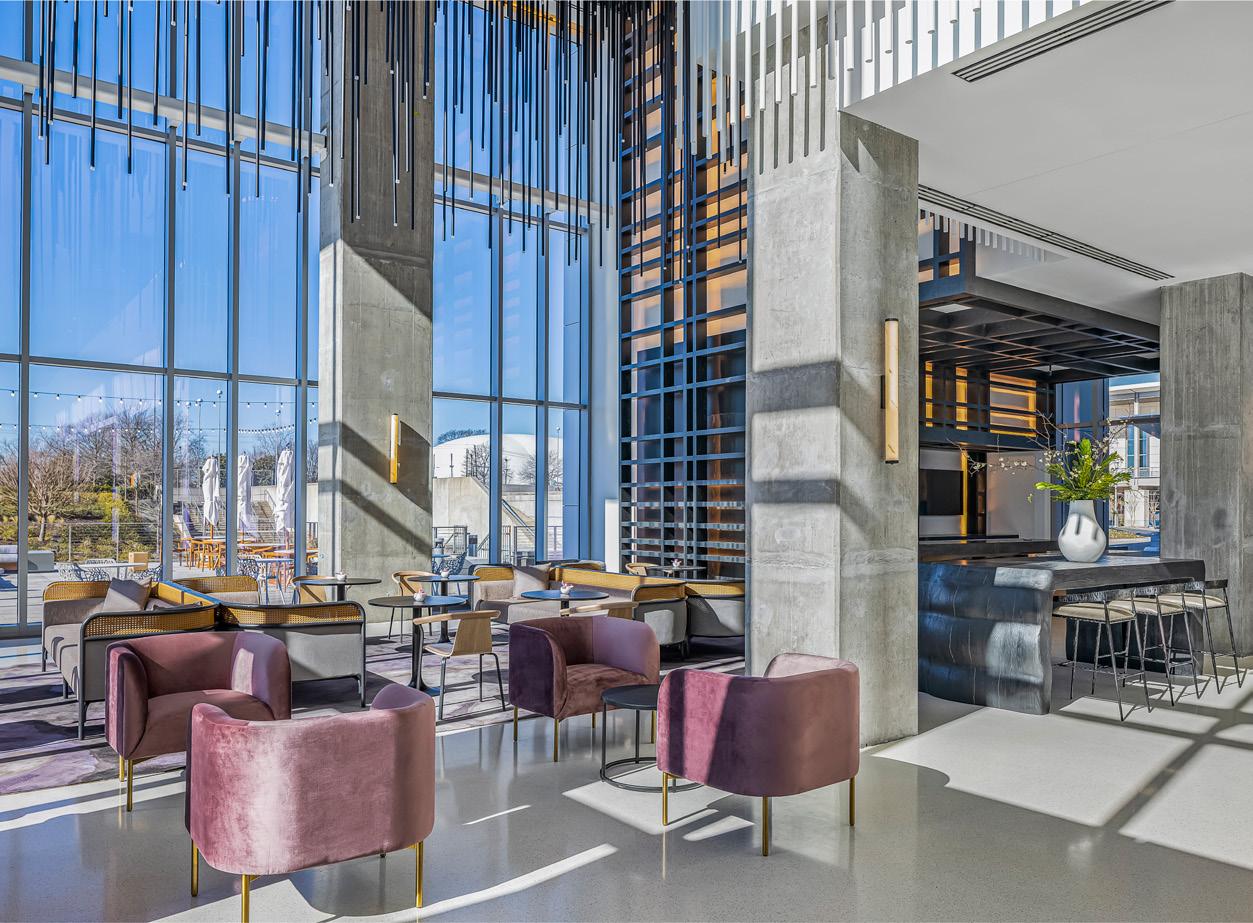
“I SEE MYSELF AS A COACH. IT’S MY RESPONSIBILITY TO UNDERSTAND WHAT MY PLAYERS CAN DO AND WHERE THEY NEED SUPPORT”– AUSTIN BELL, SENIOR DIRECTOR AND DEVELOPMENT MANAGER, THE DREW COMPANY
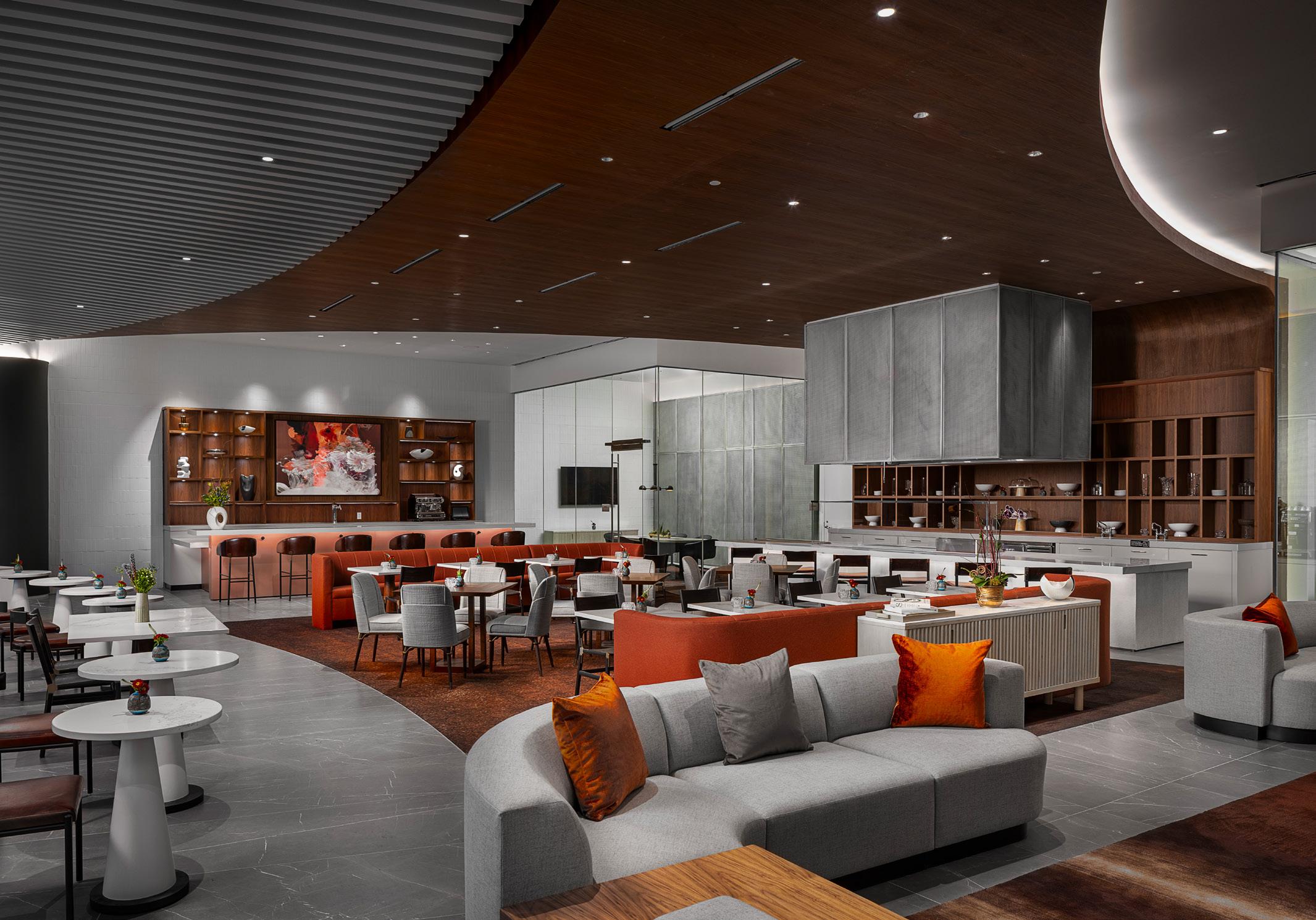
An industry stalwart, The Drew Company maintains a cooperative, hands-on approach. As owners and operators of many of its properties, the company also benefits from a deep understanding of the products it develops and their operational needs, whilst maximizing this in-house expertise to retain value for money.
“I feel we are unique in that, as managers, we don’t just hire architects and engineers so we can sit back and watch them work. We work together to understand functional design and look at things with a critical eye, whilst being hands-on in problem-solving and evaluating design aesthetics,” Bell reveals.
Further setting The Drew Company apart from the competition is its commitment to clients, projects, and, in turn, the industry as a whole.
“We believe in quality developments that transform and enhance the community, while being
“WE BELIEVE IN QUALITY DEVELOPMENTS THAT TRANSFORM AND ENHANCE THE COMMUNITY, WHILE BEING RESPECTFUL TO THE NEEDS AND VISIONS OF OUR CLIENTS”
– AUSTIN BELL, SENIOR DIRECTOR AND DEVELOPMENT MANAGER, THE DREW COMPANY
respectful to the needs and visions of our clients,” he insights.
As the developer of Signia by Hilton (Signia), a new hotel in downtown Atlanta, The Drew Company has played a pivotal role in its design program, budget, contract negotiation, and overall execution.
“In addition, we facilitated the design review process with the
owner and operator, the Georgia World Congress Center Authority (GWCCA), participated actively in the subcontractor award process, provided boots on the ground to troubleshoot construction-related issues, and negotiated change orders and disputes,” Bell expands.
As Hilton’s largest market, and as the demand for business travel in the city approaches pre-COVID-19 pandemic levels, Atlanta boasts more Hilton

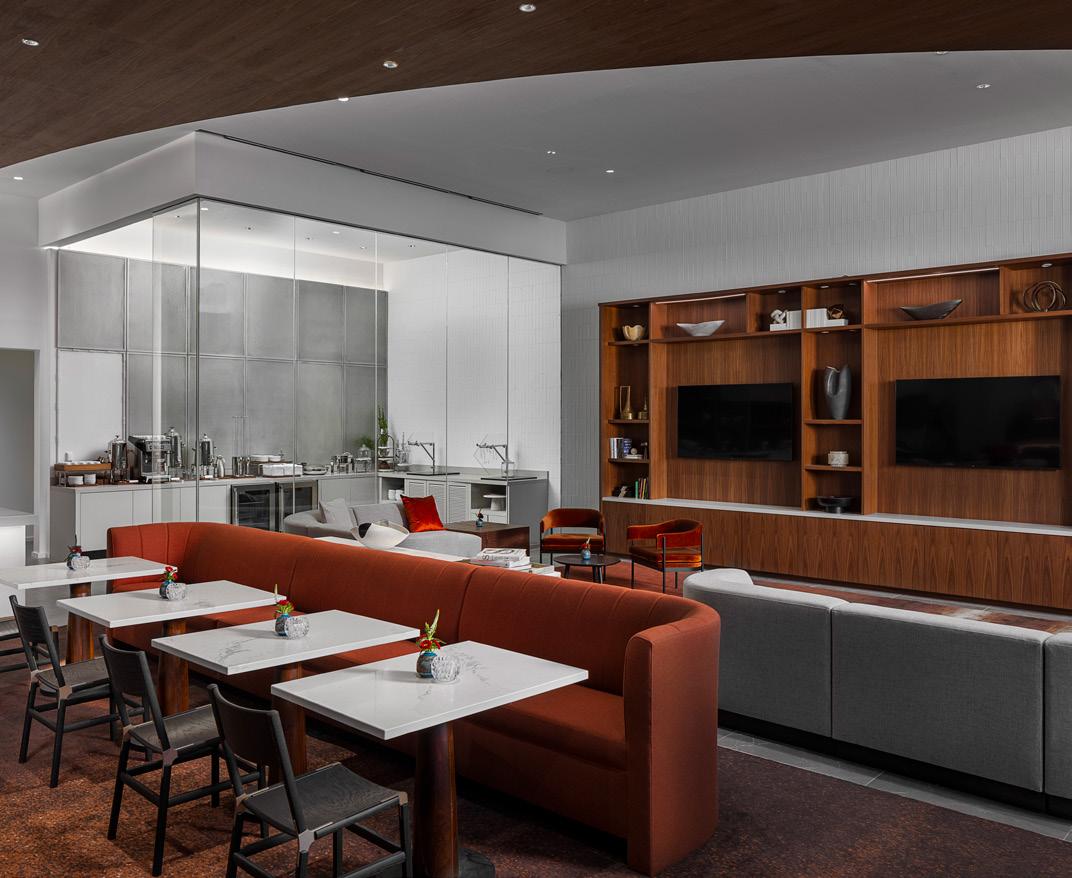
hotels than any other location globally. This, coupled with Signia’s proximity to the Georgia World Congress Center (GWCC), has seen the hotel experience unprecedented success since it opened earlier this year.
“Only eight weeks after opening to the public in January 2024, Signia experienced its first $1 million weekend, coinciding with Presidents’ Day. This, along with 10 subsequent sellouts for the 976-key hotel and four
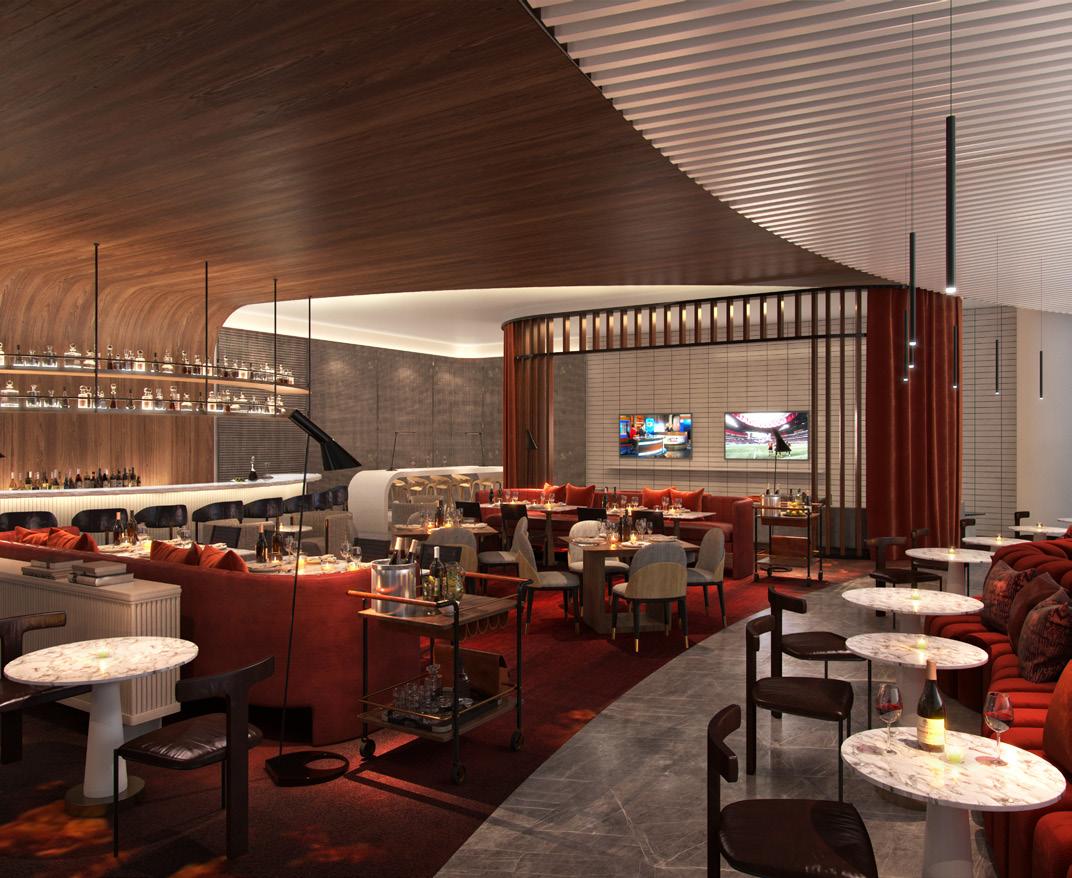
gala events in the grand ballroom for more than 700 guests, equates to a lot of revenue,” he outlines.
Furthermore, The Drew Company was tasked with contracting the hotel’s furniture, fixtures, and equipment (FFE), its operating supplies and equipment (OSE), alongside overseeing the project’s quality control through compliance with contract documents and applicable building codes.
The initial development of the hotel was not, however, without its challenges. The Drew Company faced obstacles such as keeping the project dream alive during the insurgence of the COVID-19 pandemic and securing bond financing.
“During construction, we also saw supply chain issues, material shortages, and cost escalation that had the potential to derail the project.”

Since the COVID-19 pandemic, the construction industry has seen a huge loss of talent. This has resulted in a strained workforce, often with a lack of real-world, hands-on construction experience.
To mitigate this issue, Bell believes that an apprenticeship or trade association program could help provide not only laborers but also management with a deeper understanding of the ins and outs of construction.
“In my early years within the industry, I found learning on the job to be educational. As a vertically integrated business, The Drew Company recognizes how invaluable exposure and experience is,” he explains.
Bell continues to reflect on the importance of ‘training down’, so that his generation is able to pass on its knowledge and years of experience to the construction professionals of tomorrow.
Bell’s reflections on a changing industry go hand-in-hand with the company’s ethos of collective responsibility.
“As a manager, I strive to maintain an open dialogue and hear my employees’ different perspectives on life,” he informs us.
Thus, against the backdrop of an industry that sees constant change, Bell hopes to promote a culture of vertical integration and broader training to ensure less experienced staff have a holistic understanding of the construction industry.


However, despite these frustrations, the project was successful and earned The Drew Company a tangible legacy that will remain for years to come.
“On the whole, I find property development exciting and frustrating, but greatly rewarding. What other industry can you anguish over a project for five years but leave a landmark that will last generations?” he observes.
As a relationship-based development firm, The Drew Company relies heavily on repeat business with its partners. In this way, alongside its work with major hotel brands such as Hilton and Marriott, the company enjoys a close working relationship with Citibank.
“Citibank served as the underwriter for the hotel revenue-backed bonds on the Signia project. This was no small feat, given its complex timeline.


“Navigating the process leading up to the bond closing requires pricing validation, market studies, and approvals; we could not have done this without Citibank,” discloses Bell.
In addition to its partnerships with noteworthy brands and large-scale projects, The Drew Company is also keen to emphasize the importance of subcontractors and tradespeople in its daily operations.
“A key point in any successful project is going to be the people that work week in and week out to bring it to life,” Bell highlights.
On the Signia project alone, around 500 to 600 workers were on site on any given day, with many more working behind the scenes. These ranged from architects, designers, and engineers, to trade contractors and specialty consultants such as purchasing agents, special inspectors, and third-party oversight inspectors.
“The names of the companies we
work with may change from project to project. I’ve found that it’s not about the name you hire, but the people that work on the project that make all the difference,” he insights.
Going forward, The Drew Company hopes to continue prioritizing its people, growing them professionally, and celebrating their successes.
“After all, The Drew Company is a product of its people. In order for the business to continue to grow and be successful, we need our people to grow and be successful,” Bell emphasizes.
In addition, The Drew Company remains dedicated to responsible, well-planned developments that give back to the communities it builds in.
“Our goal is to create a sustainable business that can pass from generation to generation. In this industry, you are only as good as your last bad development,” he concludes.



